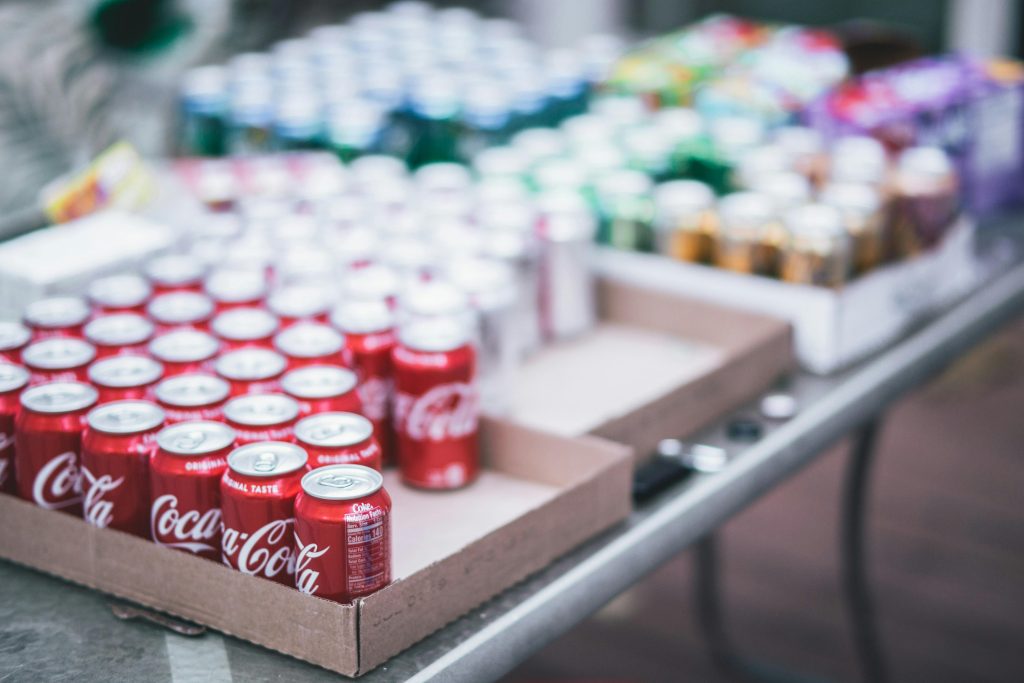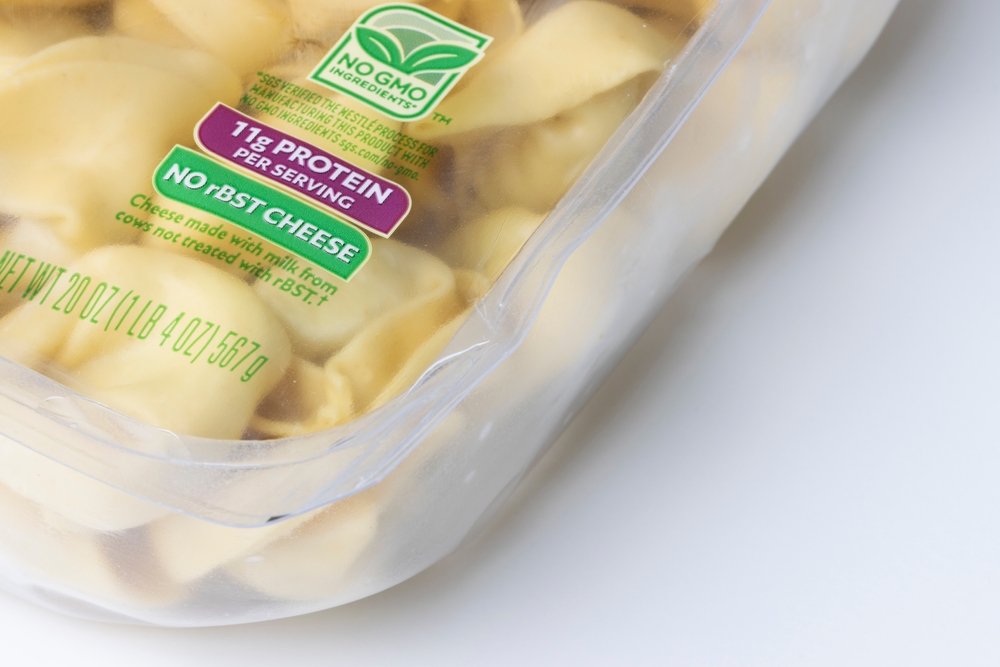Robert F. Kennedy is Reportedly Pushing to Ban All Sodas & Candy From U.S. Food Stamp Benefits. Thoughts?
Last updated on
Can taxpayer dollars buy a two-liter of soda? For decades, the Supplemental Nutrition Assistance Program has said yes, making sugary drinks one of the most commonly purchased items through food stamps. At the same time, public health officials point out that soda is the single largest source of added sugar in the American diet, fueling an epidemic of obesity and diabetes that now affects more than a third of U.S. children.
Into this long-running debate steps Robert F. Kennedy Jr., who is pressing to ban soda and candy from SNAP purchases. His proposal has sparked both fierce pushback and surprising bipartisan interest, pitting health advocates against anti-hunger groups, and drawing inevitable comparisons to past public battles with Big Tobacco. What looks like a simple question of what people should be allowed to buy with benefits has quickly become a test of how far the government should go in shaping the nation’s diet.
Policy Push Meets Political Resistance
Robert F. Kennedy Jr.’s proposal to bar soda and candy purchases through the Supplemental Nutrition Assistance Program has ignited a tug-of-war in Washington. As Health and Human Services Secretary, Kennedy has been urging governors to request waivers that would allow states to restrict these items. Yet the program is overseen by the Department of Agriculture, leaving Agriculture Secretary Brooke Rollins and her staff wary of the rapid pace and scope of Kennedy’s push. While both leaders publicly support the “Make America Healthy Again” initiative, the policy drive has exposed the fault lines between their agencies.
This is not the first time food restrictions have been tested in SNAP. High-profile efforts from New York City’s attempt under Mayor Michael Bloomberg in 2011 to Maine’s proposal in 2018 were rejected by the USDA over logistical hurdles and doubts about long-term health benefits. Any waiver must meet strict standards, including proving that states can track results and define categories clearly, a challenge when even distinguishing “sugary drinks” from flavored waters can be complex.
JUST IN: 🇺🇸 US Health Secretary Robert F. Kennedy Jr. pushes to completely ban Sodas from food stamps.
— Remarks (@remarks) August 4, 2025
"If you want a sugary soda, the taxpayers should not pay for it." pic.twitter.com/DN3ArkOSgd
Still, momentum is building. Governors in Arkansas, Utah, and West Virginia have already signaled plans to pursue waivers, while Democrats like California’s Gavin Newsom and Colorado’s Jared Polis have suggested they might be open to similar restrictions. This emerging coalition hints at the rare possibility of bipartisan support, even as lobbying groups like the American Beverage Association argue the policy would stigmatize low-income families without producing real health gains.
What emerges is less a simple food policy debate than a political test of how far the government can go in reshaping public nutrition and whether Kennedy’s push is a bold step forward or an overreach that risks outpacing the system’s capacity to adapt.
The Public Health Argument

Few dispute the health risks tied to sugary drinks. Soda remains the leading source of added sugars in the American diet, contributing to rising rates of obesity, diabetes, and heart disease. The Centers for Disease Control and Prevention estimates that more than 36 percent of U.S. children are now overweight, obese, or prediabetic a trend that has placed long-term pressure on public health systems and spending.
Robert F. Kennedy Jr. has framed his proposed restrictions as a way to address what he calls an unsustainable cycle: the government subsidizing foods that worsen health, while simultaneously paying billions to treat the resulting chronic conditions. At public events, he has compared the soda industry’s role in shaping consumption habits to that of the tobacco industry in decades past. “We are literally poisoning those neighborhoods,” Kennedy warned in a recent interview, emphasizing that low-income communities bear a disproportionate share of the chronic disease burden.
Nutrition experts, however, stress that while Americans would benefit from drinking less soda, the impact of bans within SNAP is less certain. Joel Berg, CEO of Hunger Free America, argues that “if we really want to improve public health, we ought to make healthier food more affordable, more physically available, and convenient.” Dariush Mozaffarian, director of the Food as Medicine Institute at Tufts University, supports discouraging soda consumption but points to incentive programs such as boosting SNAP benefits when recipients purchase fruits and vegetables as more effective tools.
Economic and Social Equity Concerns

For many of the 42 million Americans who rely on food stamps, the SNAP program represents more than financial support it carries dignity and autonomy. Critics of Kennedy’s proposal warn that restricting soda and candy risks stigmatizing families already facing economic hardship. Antihunger advocates, such as the Food Research and Action Center, argue that framing SNAP recipients as irresponsible consumers oversimplifies the complex realities of poverty and nutrition.
Personal stories underscore the nuance. Natalie Kiyah, a working mother of four from Portland, Oregon, describes occasionally using benefits to buy soda as part of a family pizza night. For her, the choice represents a small indulgence with outsized emotional value. “The more choice I have, I feel more dignity,” she said. “I feel more secure in who I am having options which then makes me a better mom and better mental health.” For parents like Kiyah, the debate is not simply about sugar intake but about preserving agency in environments where healthy food is already difficult to prioritize.
A 2021 USDA survey highlights those barriers: more than 60 percent of SNAP participants reported that affordability and lack of access to fresh produce were the greatest obstacles to healthier eating. Food deserts areas with limited access to grocery stores or affordable fresh foods compound the problem, leaving fast food and packaged items as the most readily available options.
This is why some advocates describe soda bans as a diversion from systemic reforms. They argue that real progress depends on lowering the cost of fruits, vegetables, and proteins, expanding grocery store access in underserved communities, and creating positive incentives for healthier choices. Without these measures, restrictions risk reinforcing inequities rather than alleviating them.
Industry Influence and Lobbying Battles

Any proposal to reshape SNAP inevitably runs into the formidable presence of the food and beverage industry. Soda manufacturers and their trade group, the American Beverage Association, have lobbied aggressively against efforts to restrict what benefits can buy. Their position is clear: limits on soda or candy would stigmatize SNAP participants and do little to improve nutrition. “We are fiercely protective of our consumers and their ability to make decisions for their families,” said Meredith Potter, senior vice president at American Beverage.
The lobbying fight mirrors earlier public health battles. Kennedy himself has compared it to the decades-long struggle against tobacco companies, framing the soda industry as another corporate giant resistant to regulation despite mounting evidence of health harms. The stakes are considerable: sugary drinks consistently rank among the top purchases made with food stamps, and restricting them would directly affect beverage companies’ bottom lines.
Industry representatives counter that they have already responded to consumer demand for healthier products, pointing to the rapid growth of bottled water, sparkling waters, and low-calorie options. They also argue that people on SNAP consume soda at rates comparable to the general population, challenging the idea that the program disproportionately fuels sugar intake.
Still, the political weight of industry lobbying cannot be underestimated. Past efforts to impose similar restrictions including New York City’s and Maine’s proposals were defeated in part because of the beverage industry’s influence in Washington and its ability to frame the debate around fairness and personal choice. Whether Kennedy’s initiative can withstand similar pressure remains one of the central questions surrounding his plan.
A Growing State-Level Movement

While Washington wrestles with the feasibility of restricting food stamp purchases, several states are already moving ahead with their own initiatives. Governors in Arkansas, Utah, and West Virginia have either introduced or signed legislation directing their states to seek waivers from the U.S. Department of Agriculture to block soda or candy from SNAP eligibility. Utah Governor Spencer Cox recently signed such a bill, while West Virginia Governor Patrick Morrisey announced plans alongside Kennedy to petition the federal government for similar changes.
What makes this push notable is the emerging bipartisan character. Republican-led states have been the first movers, but Democratic governors such as Gavin Newsom of California and Jared Polis of Colorado have signaled openness to exploring restrictions. This suggests that the issue though divisive in many respects taps into a shared political concern over the nation’s worsening health outcomes and the costs of treating preventable diseases.
The state-level efforts are also being positioned as test cases. By submitting waivers, governors could help demonstrate whether such restrictions are administratively workable and whether they meaningfully shift consumption patterns. Advocates see these pilot projects as a chance to build evidence, while skeptics warn they risk imposing bureaucratic hurdles on families without solving systemic problems of access and affordability.
The debate ultimately asks how far government should go in shaping the nation’s diet and whether policy tools like SNAP are the right lever for such a change. Banning soda and candy could be seen as a bold attempt to curb preventable disease, or as a diversion from more systemic reforms that would make healthier food affordable and accessible to all. What is clear is that Kennedy’s campaign has reignited a national conversation about food, health, and responsibility, one that is likely to shape both state and federal policy for years to come.
Still, the rapid adoption of bills across states underscores how Kennedy’s proposal has resonated far beyond Washington. What began as a Cabinet-level flashpoint has now become a patchwork experiment in food policy, raising the possibility that state-level momentum could shape national policy in ways Congress has long resisted.
Health Reform or Symbolic Politics?
Robert F. Kennedy Jr.’s push to restrict soda and candy purchases through SNAP sits at the crossroads of health policy, economic equity, and political symbolism. On one hand, the initiative reflects a growing recognition that taxpayer-funded programs should align with public health goals, particularly at a time when chronic diseases linked to diet strain families and government budgets alike. On the other, critics argue that restricting what low-income families can buy risks treating symptoms rather than causes, while overlooking deeper challenges like affordability, access to fresh foods, and corporate influence over the food supply.
The debate ultimately asks how far government should go in shaping the nation’s diet and whether policy tools like SNAP are the right lever for such a change. Banning soda and candy could be seen as a bold attempt to curb preventable disease, or as a diversion from more systemic reforms that would make healthier food affordable and accessible to all. What is clear is that Kennedy’s campaign has reignited a national conversation about food, health, and responsibility, one that is likely to shape both state and federal policy for years to come.
Some of the links I post on this site are affiliate links. If you go through them to make a purchase, I will earn a small commission (at no additional cost to you). However, note that I’m recommending these products because of their quality and that I have good experience using them, not because of the commission to be made.

































 JOIN OVER
JOIN OVER
Comments